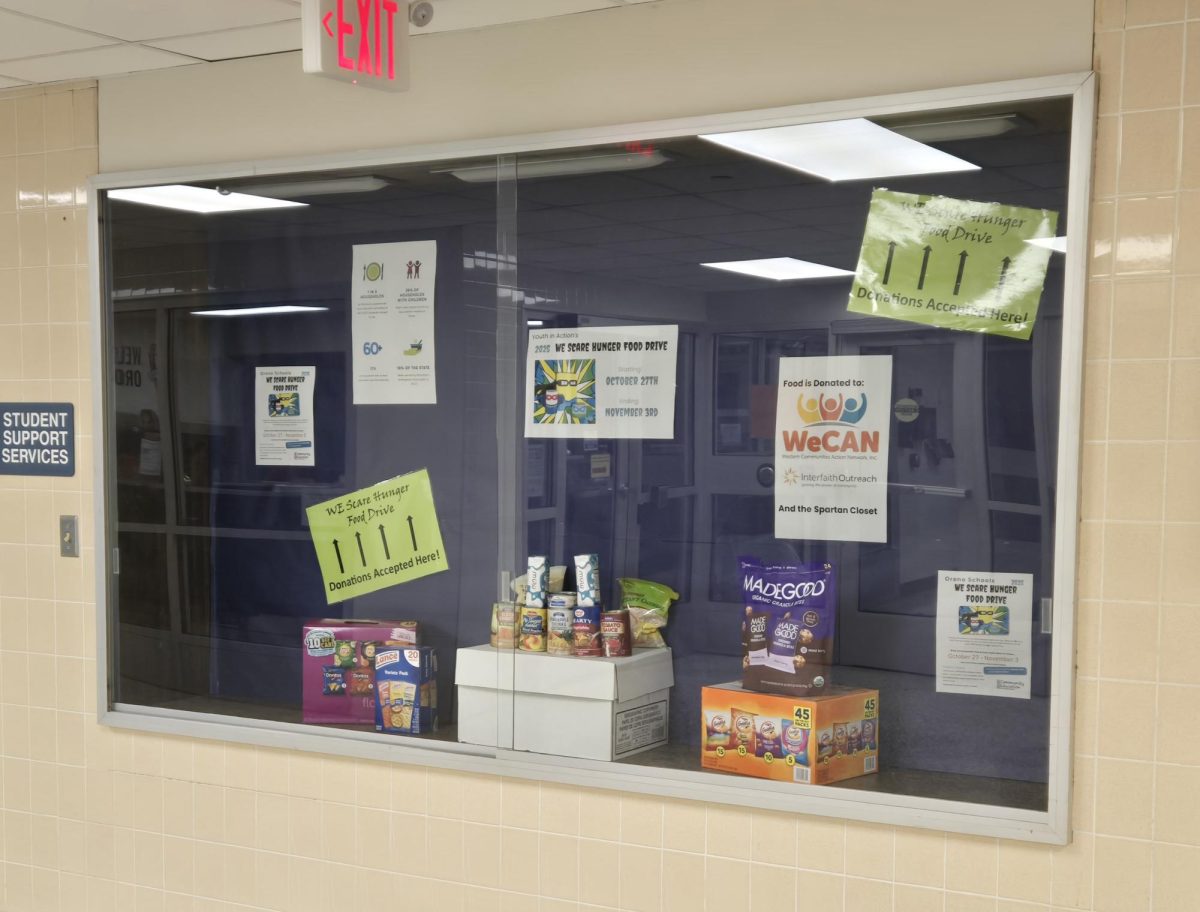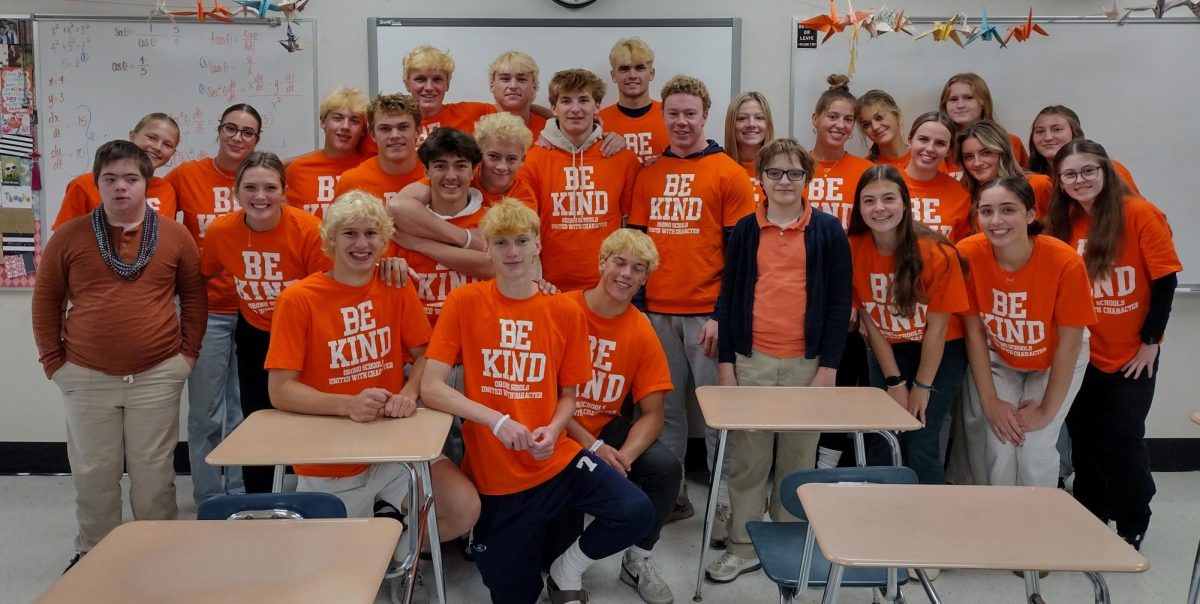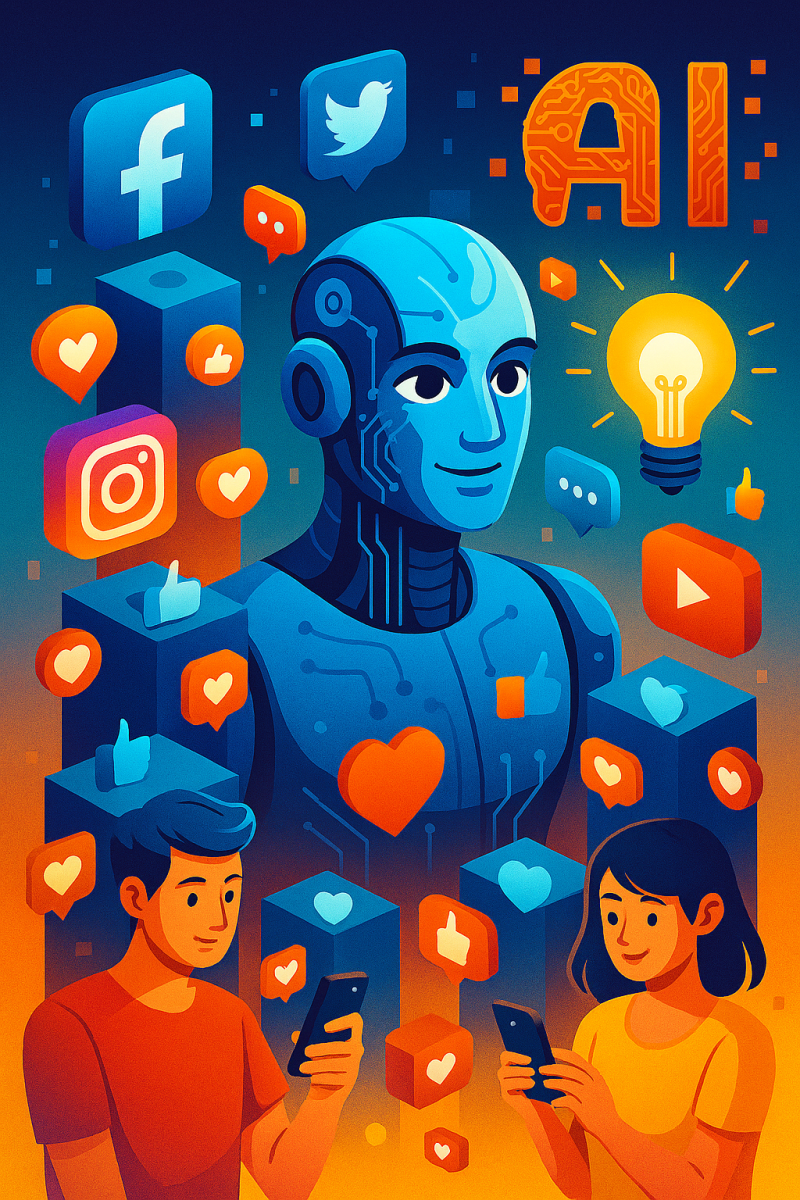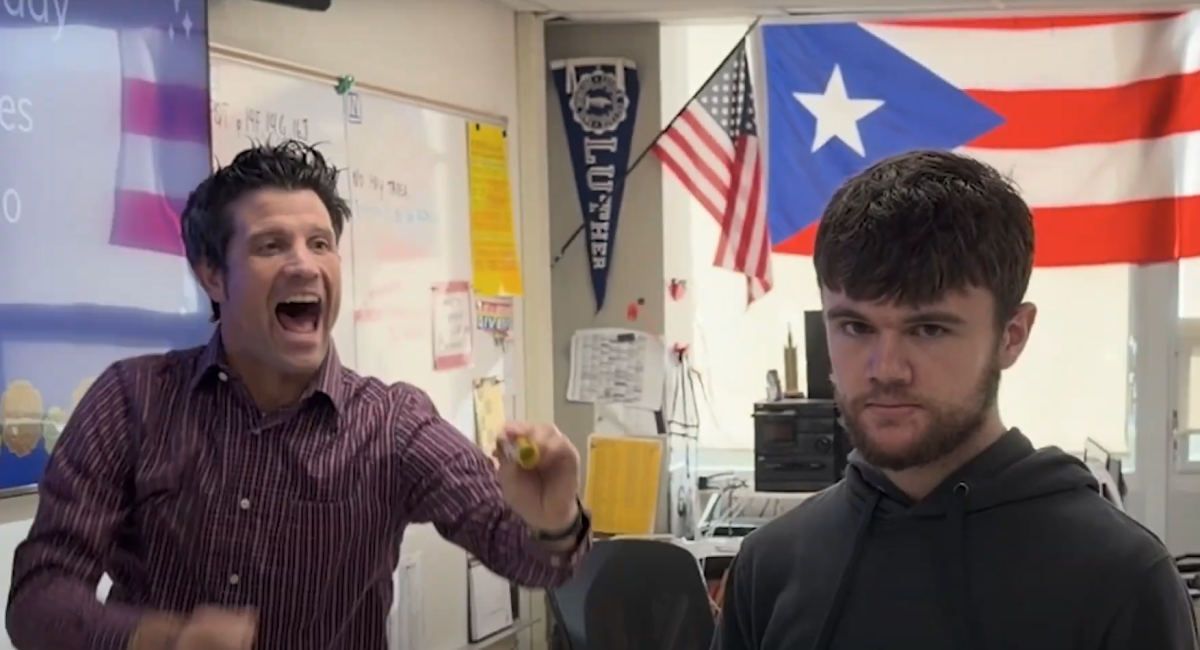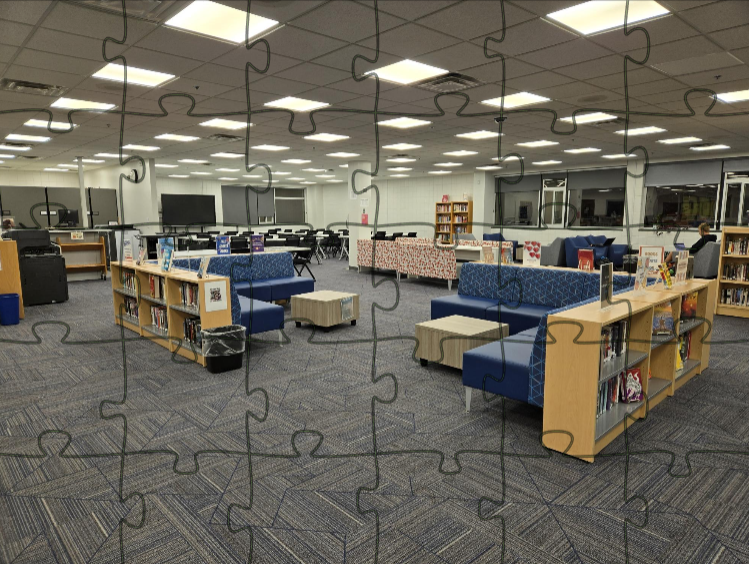Isolation Induces Introspection for OHS Students
Though the world might seem to have come to a standstill at the beginning of the COVID-19 pandemic, many teenagers gained enough momentum to finally find themselves.
“I found out so much about who I am, what I love to do, and new passions and interests. I also gained a lot more insight into people around me and the world as a whole. I can say with a lot of confidence that I never would have figured it out without that level of isolation,” Orono senior Hannah Johnson said.
Though every different mind reacts to isolation in it’s own way, a common occurrence has been that being allowed to experience true solitude can give people opportunities to step away from the preconceived notions of others and think about things they might never have before. In the article “Solitude: An Exploration of Benefits of Being Alone,” authors Christopher Long and James Averill detail that, while there are negatives to solitude, it can also lead to increases in creativity, freedom, and spirituality. For many adolescents, that meant freedom to express themselves, and a chance to realize they weren’t who they had been taught they were.
“I have definitely felt more courage coming back to school [after isolation]. There are some things I’m not sure I would have done [before the pandemic] like auditioning for the commencement speech. Before, I would have needed encouragement from friends, but now I feel more confident in myself,” Orono senior Lexi Ostvig said.
“I think the pandemic was a good opportunity for me to step away from school and social pressure. I am a very social person, so the isolation was difficult for me to adjust to, but I think in the long run, I needed the space that the pandemic allowed me. I think that the space away from the public high school really opened up my brain to itself, and the more that I learned about the LGBTQ community, the more I was like ‘wow, I really resonate with this.’ Without that space I don’t think I would have developed the mindset of being completely myself, because I would have always been in the public eye in high school. It comes with so many sorts of pressures to be, quote/unquote, ‘perfectly normal’, and that includes heterosexuality,” OHS senior Sky* said.
With how busy life is in the 21st century, time is the one luxury most will never be able to afford. In fact, according to the article “Survey: The average American has less than half an hour of free time per week” by CW Headley, the average participant claimed that they were so busy that they only had about half an hour of free time a week. During a typical school year, teenagers have to balance school, homework, studying, sleep, social interaction, and family time, not to mention many teens have a job on top of everything else. There just isn’t enough time in the day to get everything required done, and in the sporadic moments of free time, the less interesting elective activities fall to the wayside.
“I feel like before the pandemic everything was so hectic no one had any time to figure out what they actually wanted for themselves, instead of just what was expected of them. And then suddenly, we had all this time on our hands, and there weren’t any activities or anything to pick up because everything was shut down. So for me, kinda the only place to turn my thoughts was inwards. I finally had enough time to think ‘is this really who I am, or is it what people assume I am?’,” Orono senior Sage* said.
“Honestly I probably wouldn’t have figured stuff out for a long time, because I just wouldn’t have had the time to focus on myself and discover a lot of online stuff and interact with a lot of people (online of course, because COVID). I just wouldn’t have had the time, but this forced me to slow down and stop and just review how exactly I wanted my life to go and I was like, ‘Yeah, we’re gonna need some changes at this rate’,” Orono senior Riley Schulte said.
With limited social interaction, online school, and the shut down of a great deal of extracurriculars, people needed to find something to fill up the free time that had appeared out of nowhere, and people’s social needs not being met, social media was one such filler. In the article “COVID-19 is changing how, why and how much we’re using social media” by Suzin Wold, 72% of the people they studied said that their social media input had greatly increased due to the pandemic.
This is corroborated by the article “How young LGBTQIA+ people used social media to thrive during COVID lockdowns,” where researchers Benjamin Hanckel and Shiva Chandra detailed their findings that LGBTQIA+ youth increased their social media intake during COVID-19 lockdown, and for many of them it positively impacted their view of their own identity, and helped them discover themselves.
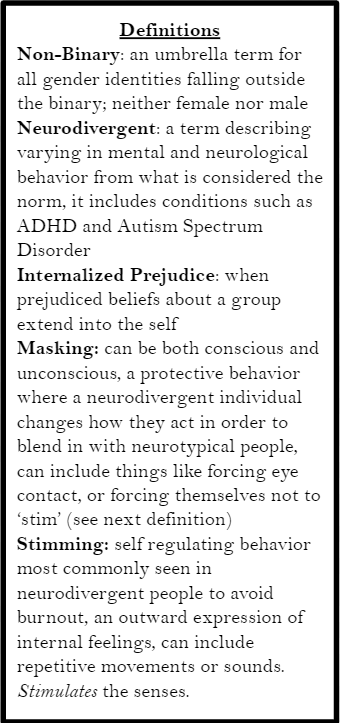
“I wouldn’t have met a majority of the people that I talk to now if it weren’t for social media. I was able to get into a lot more online forums which helped me figure out ‘Yeah, I am actually non-binary,’ because I’d been thinking about it for a couple of years at that point. I sort of solidified my sexuality, and then I was like, ‘huh, chances are I’m neurodivergent’,” Schulte said.
The added social media use wasn’t just helping people who were already questioning. Adding to Hanckel and Chandras research, the article “The Parasocial Contact Hypothesis” by Edward Schiappa, Peter Gregg & Dean Hewes suggests that when people are exposed to marginalized identities their prejudices and stereotyping decrease. For queer individuals with severe internalized predjudice, this can make them realize that they aren’t the only people that feel the way that they do, and help them come out to themselves.
“On Tik Tok, the For You page is catered to your interests. There’s also a lot of people who make pretty educational videos. I watched a lot of creators with content that resonated with me. The more that I liked those videos the more that they popped up on my For You page. I realized [the LGBT+ community] is something that I’m actually interested in exploring and learning more about. I didn’t come to the conclusion that I was a lesbian exclusively because of that, but it actually did play a pretty big part, because I was able to see that people all over the world had feelings and experiences similar to me. I felt that too, that’s what I’ve experienced, and that kind of helped me to see that this wasn’t an isolated experience,” Sky said.
This holds true for coming to terms with being part of other marginalized communities as well. In the article “‘My Voice Is Definitely Strongest in Online Communities’: Students Using Social Media for Queer and Disability Identity-Making,” author Ryan A. Miller details how social media can help people start to accept themselves for things that are typically brushed under the rug, and discover more about who they are. For individuals with invisible illnesses and mental conditions that aren’t talked about, it can give them a community that teaches them that there isn’t anything wrong with them.
“For years I had been feeling like maybe I was just lazy and overly sensitive, and with how society only focuses on a few narrow assumptions about ADHD and autism, and the fact that I’m apparently really good at masking, no one had noticed anything different about me. I thought there was just something wrong with me, and I felt like the fact I couldn’t ‘fix’ or ‘change’ myself in the way people wanted me to made me a bad person. Seeing people on social media express themselves, and educate people on this stuff helped me realize that maybe there’s a reason I feel this way, it’s not just me, and it taught me a lot about myself I hadn’t ever thought about before. I had been stimming for my whole life, and until I saw someone talk about what it was, I just thought I was twitchy when stressed. I hadn’t even realized that I masked my symptoms as much as I did until I started letting myself unmask around my neurodivergent friends, and I realized that instead of going home completely stressed and exhausted like usual, I wasn’t completely drained from acting a certain way just to make other people happy,” Sage said.
As Dr. Wittman from the Institute for Frontier Areas of Psychology and Mental Health in Freiburg said, “In boredom, because we are overly sensing our own bodily feelings, time expands a lot.” Human beings are psychologically wired to stay busy. In times of isolation, that desire for mental stimulation is searched for wherever it can be acquired. Brains want to think, and when there is less crowding the mind, there is finally space to think about everything that has been pushed to the side for more time critical tasks. Forced isolation due to the COVID-19 pandemic gave many people exactly the time they needed in order to become themselves. As journalist Tiziano Terzani said in his book A Fortune Teller Told Me, after a month of self-imposed isolation, “At last I had time to have time.”
*Pseudonyms have been used in order to protect the anonymity of some students.[sidebar

